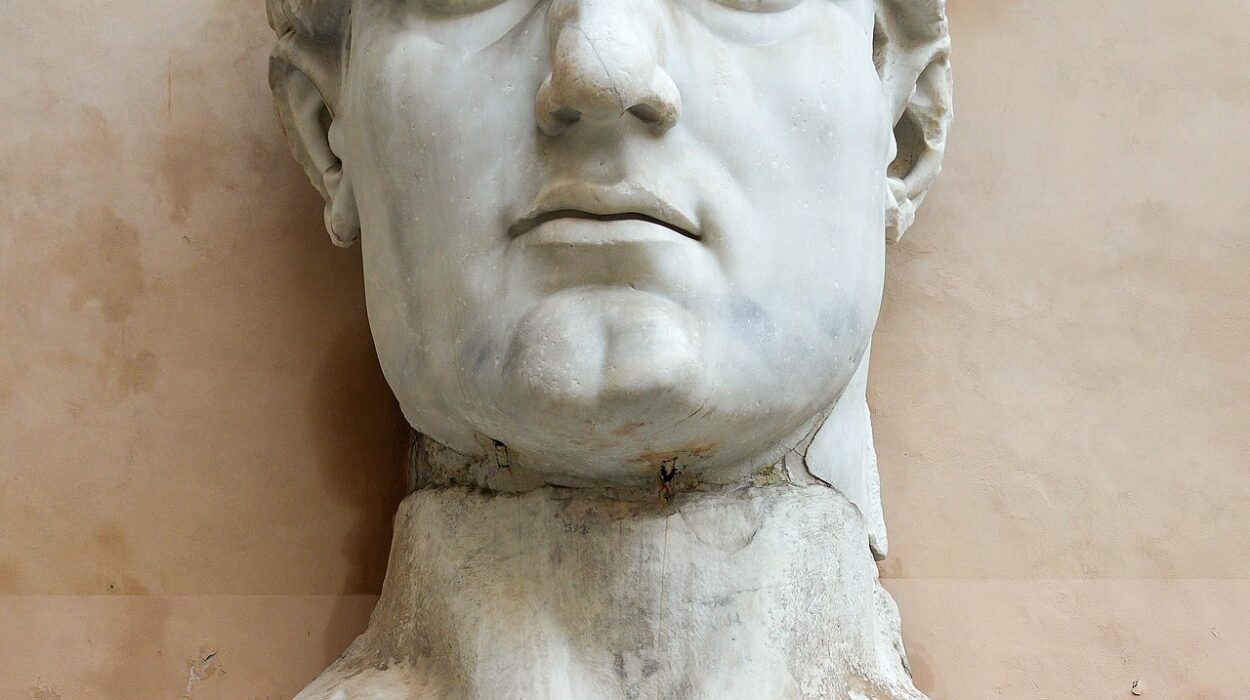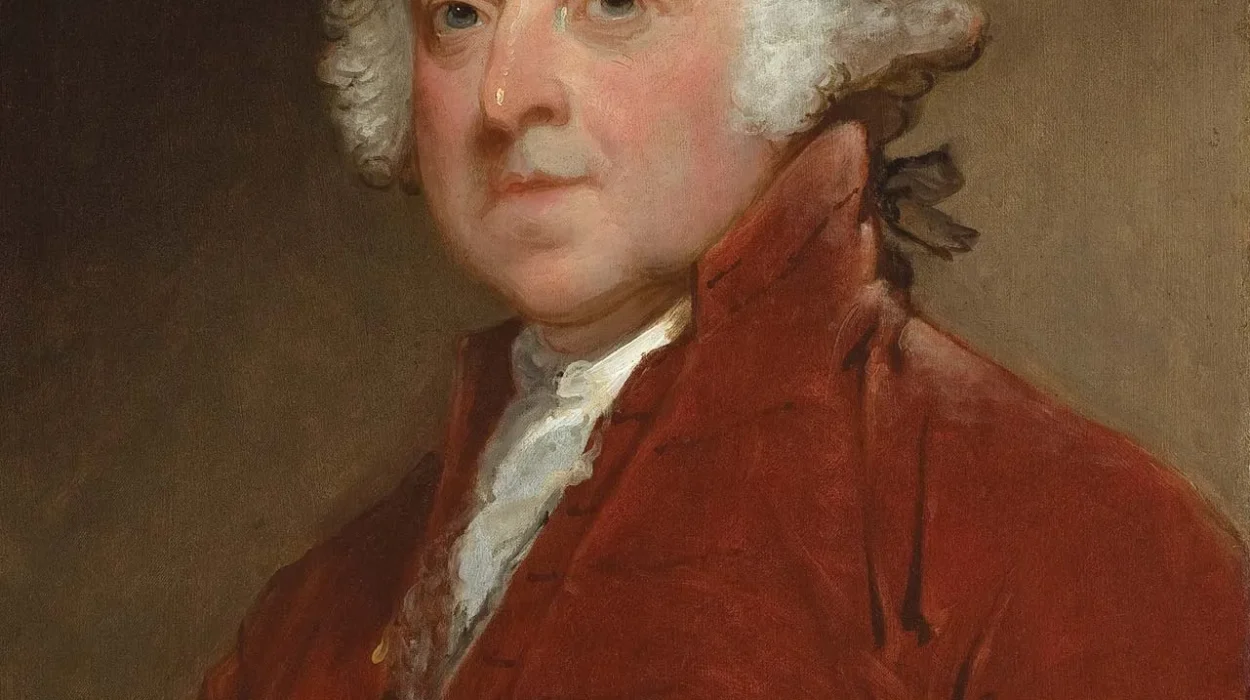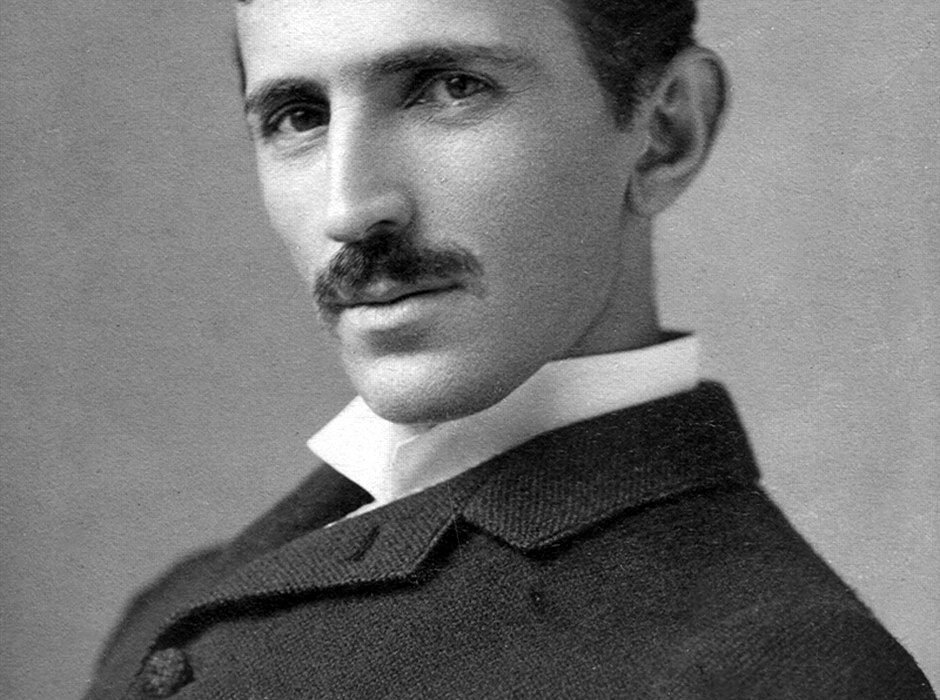John Locke (1632–1704) was an English philosopher and political theorist who is often regarded as the “Father of Liberalism” for his profound influence on the development of modern political thought. Born in Somerset, England, Locke’s ideas laid the groundwork for many principles central to the Enlightenment and modern democratic governance. His most notable works, such as “Two Treatises of Government,” argue for the concepts of natural rights, including life, liberty, and property, and the idea that government’s legitimacy comes from the consent of the governed. Locke’s philosophy also extended to education and epistemology, as seen in his work “An Essay Concerning Human Understanding,” where he proposed the idea of the mind as a “tabula rasa” or blank slate, emphasizing that knowledge is derived from experience. Locke’s ideas heavily influenced the development of political philosophy, particularly in shaping the American and French revolutions, and his legacy endures in contemporary discussions on individual rights and government.
Early Life and Education (1632-1652)
John Locke was born on August 29, 1632, in the small village of Wrington, Somerset, England. His family was of modest means, with his father, also named John Locke, serving as a lawyer and a captain of cavalry for the Parliamentarians during the English Civil War. His mother, Agnes Keene, was known for her strong religious convictions and instilled in young John a deep sense of piety and moral responsibility. The Puritan values of his family—emphasizing hard work, education, and religious devotion—profoundly shaped Locke’s character and intellectual pursuits.
Locke’s early education began at home, where his father took a keen interest in his learning, ensuring that John was well-versed in the basics of reading and writing before attending formal schooling. At the age of 14, Locke was sent to Westminster School in London, one of the most prestigious schools in England. At Westminster, Locke excelled in classical studies, mastering Latin and Greek, and gaining a strong foundation in logic, rhetoric, and grammar. The rigorous curriculum and competitive environment at Westminster helped to hone Locke’s intellectual abilities and fostered a lifelong love of learning.
In 1652, Locke’s academic success at Westminster earned him a scholarship to Christ Church, Oxford, one of the leading centers of learning in Europe. However, Locke’s experience at Oxford was marked by frustration with the traditional scholastic curriculum, which was heavily focused on Aristotelian philosophy and theology. Locke found the rigid and dogmatic approach to learning unsatisfactory and began to seek out alternative sources of knowledge.
During his time at Oxford, Locke was introduced to the works of René Descartes, whose emphasis on reason and the use of methodical doubt resonated with Locke’s own growing skepticism of received wisdom. Descartes’ ideas, combined with the empirical approach advocated by Francis Bacon, who emphasized observation and experimentation, began to shape Locke’s thinking. Locke became increasingly interested in the emerging scientific revolution, which challenged traditional modes of thought and offered new ways of understanding the natural world.
Locke’s interest in science led him to study medicine, a field that combined empirical observation with practical application. Although he never fully practiced as a physician, Locke’s medical studies had a lasting impact on his philosophical work, particularly his emphasis on the role of experience in shaping human knowledge. Locke formed close relationships with prominent scientists of the time, including Robert Boyle, a leading figure in chemistry, and Thomas Sydenham, a pioneering physician. These connections further deepened Locke’s commitment to empirical methods and his belief in the power of observation and experience to uncover truths about the world.
Locke completed his Bachelor of Arts degree in 1656 and his Master of Arts in 1658. Despite his initial dissatisfaction with the academic environment at Oxford, his years there were formative in shaping his intellectual trajectory. It was during this period that Locke began to develop the ideas that would later become central to his philosophical and political writings. Although he pursued further studies in medicine, obtaining a Bachelor of Medicine in 1674, Locke’s true passion lay in the exploration of philosophical questions, particularly those related to human understanding, government, and society.
Early Career and Introduction to Politics (1652-1675)
After completing his studies at Oxford, John Locke remained at the university, taking on a series of academic positions. He taught Greek and rhetoric, and later served as a tutor, providing guidance to younger students. Although Locke was a capable teacher, his heart was not fully in academia. He was increasingly drawn to the practical and political concerns of the world outside the university.
Locke’s entry into the world of politics was facilitated by his connection with Anthony Ashley Cooper, later known as the 1st Earl of Shaftesbury. The two men met in 1666, and Locke soon became a close associate and confidant of Shaftesbury, who was one of the most influential political figures of the time. Shaftesbury, a prominent leader of the Whig Party, was deeply involved in the political struggles of the Restoration period, particularly the opposition to the absolute rule of the monarchy.
Shaftesbury recognized Locke’s intellectual talents and offered him a position as his personal physician. Although Locke’s medical duties were relatively minor, his role within Shaftesbury’s household extended far beyond medicine. Locke became one of Shaftesbury’s most trusted advisors, involved in discussions on a wide range of political, economic, and philosophical issues. This relationship provided Locke with a unique opportunity to observe the workings of government and to engage with the leading political thinkers of the day.
Locke’s association with Shaftesbury had a profound impact on his political philosophy. Shaftesbury was a staunch opponent of the monarchy’s attempts to assert absolute power, and his views on liberty and government strongly influenced Locke. During this period, Locke began to develop his ideas on natural rights, the social contract, and the role of government, which would later be articulated in his major political works.
Locke’s involvement in politics was not without risk. Shaftesbury’s opposition to the monarchy placed him in a precarious position, and when his political fortunes declined, Locke also faced danger. The Exclusion Crisis of 1679-1681, in which Shaftesbury and his allies attempted to prevent the Catholic Duke of York (later James II) from ascending to the throne, brought Locke into direct conflict with the Crown. When Shaftesbury was forced into exile in 1682, Locke also chose to leave England, fearing for his safety.
Despite the political turbulence, Locke continued to work on his philosophical writings. During the 1670s, he began drafting what would become “An Essay Concerning Human Understanding,” a work that sought to explore the nature of human knowledge and belief. Locke’s experience with political power and his observations of the conflicts between the monarchy and Parliament informed his thinking, leading him to question the foundations of authority and to explore the limits of human understanding.
Locke’s early career was thus marked by a deepening engagement with both philosophical inquiry and political practice. His experiences during this period laid the groundwork for his later, more comprehensive works, which would address the central questions of human knowledge, government, and society.
The Development of Political Philosophy (1675-1689)
The period from 1675 to 1689 was one of intense intellectual and political activity for John Locke. It was during these years that Locke developed and articulated many of the ideas that would later become central to his political philosophy. This period was also marked by significant personal and political challenges, including Locke’s exile in the Netherlands and his involvement in the Glorious Revolution of 1688.
Locke’s decision to leave England in 1675 was motivated by both political and personal concerns. The political climate in England had become increasingly hostile to opponents of the monarchy, and Locke, as a close associate of Shaftesbury, was under suspicion. Additionally, Locke’s health had been deteriorating, and he sought to recover in the more temperate climate of France. Locke spent several years traveling in France, during which time he continued to work on his philosophical writings and observed the political systems of other countries.
Locke’s time in France was intellectually fruitful. He was exposed to a wide range of ideas, including the works of René Descartes, whose emphasis on reason and methodical doubt continued to influence Locke’s thinking. However, it was the political situation in England that most profoundly shaped Locke’s ideas during this period. The ongoing struggle between the monarchy and Parliament, particularly the Exclusion Crisis, reinforced Locke’s belief in the importance of limiting the power of the state and protecting individual rights.
It was during this time that Locke began writing what would become his “Two Treatises of Government,” a work that would later have a monumental impact on political theory. The “Two Treatises” were written in part as a response to the political situation in England, particularly the theory of the divine right of kings, which was used to justify absolute monarchy. In the first treatise, Locke systematically dismantles the arguments for divine right, drawing on historical evidence and logical reasoning to challenge the idea that kings have a God-given right to rule.
The second treatise is where Locke’s political philosophy is most fully developed. In this work, Locke argues for a government that is based on the consent of the governed and the protection of natural rights, such as life, liberty, and property. He posits that individuals in a state of nature are free and equal, with no one having authority over another. However, to protect their rights and ensure mutual security, individuals enter into a social contract, agreeing to form a government that will act in their collective interest.
Locke’s ideas were radical for the time, advocating for a system of government that was accountable to the people and limited in its powers. He argued that if a government fails to protect the rights of its citizens or oversteps its authority, the people have the right to overthrow it. These ideas would later inspire the democratic revolutions of the 18th century, including the American Revolution, where Locke’s concepts of natural rights and government by consent were echoed in the Declaration of Independence and the Constitution.
In 1683, following the failure of the Rye House Plot—a conspiracy to assassinate King Charles II and his brother, the Duke of York—Locke fled to the Netherlands to escape potential arrest. The next few years were spent in relative obscurity, but Locke continued to work on his philosophical writings, including refining the drafts of “An Essay Concerning Human Understanding” and the “Two Treatises of Government.”
The Glorious Revolution of 1688, which resulted in the overthrow of King James II and the ascension of William III and Mary II to the English throne inspired Locke to return to England. The revolution, which Locke supported, was a turning point in British history, establishing a constitutional monarchy and affirming the principles of parliamentary sovereignty and individual rights—principles Locke had long advocated. Upon his return to England in 1689, Locke finally published his major works, including the “Two Treatises of Government” and “An Essay Concerning Human Understanding.” These publications marked the culmination of Locke’s political and philosophical thought, solidifying his place as one of the most influential thinkers of his time.
An Essay Concerning Human Understanding (1689-1690)
Locke’s “An Essay Concerning Human Understanding,” published in 1689, is one of his most significant works and a foundational text in the history of philosophy. The essay represents Locke’s most comprehensive effort to understand the nature and limits of human knowledge, challenging the prevailing theories of innate ideas and emphasizing the role of experience in shaping the mind.
The essay begins with a rejection of the doctrine of innate ideas, which held that certain concepts or knowledge are inborn in the human mind. This idea, most notably associated with philosophers like Descartes, suggested that humans are born with certain principles or knowledge already imprinted on their minds. Locke, however, argued that the mind at birth is a “tabula rasa,” or blank slate, and that all knowledge is acquired through experience. This empirical approach was revolutionary, emphasizing the importance of sensory experience and observation in the acquisition of knowledge.
Locke divided the sources of human knowledge into two categories: sensation and reflection. Sensation refers to the information we receive through our senses, such as sight, sound, and touch, while reflection is the process of the mind’s introspection on its own operations. Locke argued that all ideas and knowledge originate from these two sources. Simple ideas, derived directly from sensation or reflection, are combined by the mind to form complex ideas. This process, Locke believed, explained how humans could develop complex concepts, even if they started with simple sensory experiences.
One of the key contributions of Locke’s essay is his theory of ideas, which laid the groundwork for modern empiricism. Locke distinguished between primary and secondary qualities of objects. Primary qualities, such as shape, size, and motion, exist in the object itself and can be measured objectively. Secondary qualities, such as color, taste, and smell, are not inherent in the object but are the result of the interaction between the object and the observer’s senses. This distinction was crucial in Locke’s argument that our understanding of the world is mediated by our sensory experiences, and that what we perceive may not always reflect the true nature of reality.
Locke also addressed the limits of human knowledge, arguing that while humans can gain a great deal of understanding about the world, there are inherent boundaries to what we can know. He identified three types of knowledge: intuitive, demonstrative, and sensitive. Intuitive knowledge is immediate and self-evident, such as the understanding of one’s own existence. Demonstrative knowledge is derived through logical reasoning, such as mathematical proofs. Sensitive knowledge is based on sensory perception, which Locke acknowledged as the most uncertain form of knowledge because it is dependent on the accuracy of our senses.
Despite these limitations, Locke was optimistic about the human capacity for knowledge and reason. He believed that by using empirical methods—careful observation, reflection, and logical analysis—humans could achieve a significant understanding of the world. Locke’s emphasis on the importance of experience and observation in the acquisition of knowledge had a profound impact on subsequent philosophical thought, particularly the development of empiricism and the scientific method.
“An Essay Concerning Human Understanding” was well-received and became one of the most influential philosophical works of the Enlightenment. It challenged established doctrines and opened new avenues for inquiry into the nature of knowledge, perception, and the mind. Locke’s ideas about the mind as a blank slate and the role of experience in shaping human understanding continue to resonate in contemporary debates about education, psychology, and epistemology.
Religious Toleration and Influence on Liberalism (1689-1693)
John Locke’s advocacy for religious toleration was a central theme in his political philosophy, and his work on this topic had a profound influence on the development of liberal thought. Locke’s views on religious toleration were articulated most fully in his “Letter Concerning Toleration,” first published in 1689. This work was written in the context of the religious conflicts that had plagued Europe for centuries, and it argued for a separation between church and state and the protection of individual religious freedom.
Locke’s arguments for toleration were grounded in his belief in the autonomy of the individual and the importance of personal conscience. He argued that the state should not have the authority to impose religious beliefs on its citizens, as true faith could not be compelled by force. Instead, Locke believed that individuals should be free to follow their own religious convictions, as long as they did not harm others or disrupt public order. This idea was revolutionary in an era when religious uniformity was often enforced by law, and dissenters were frequently persecuted.
Locke’s “Letter Concerning Toleration” emphasized that the proper role of government was to protect the rights and property of its citizens, not to regulate their religious beliefs. He argued that civil government and religious institutions should be separate, with each focusing on its own domain. The government should concern itself with the temporal welfare of its citizens, while religious institutions should focus on spiritual matters. This separation, Locke believed, would promote peace and allow for a more diverse and tolerant society.
However, Locke’s commitment to religious toleration was not absolute. He excluded atheists and Catholics from his vision of toleration, reflecting the limitations of his time. Locke believed that atheists, who did not believe in a higher moral authority, could not be trusted to uphold social order, and he feared that Catholics, who owed allegiance to the Pope, might undermine the political stability of the state. Despite these exclusions, Locke’s ideas were nevertheless influential in promoting a more inclusive and pluralistic society.
Locke’s advocacy for religious toleration was closely linked to his broader political philosophy, particularly his views on individual rights and the role of government. Locke believed that individuals had natural rights to life, liberty, and property, and that the primary purpose of government was to protect these rights. This emphasis on individual rights and limited government is a hallmark of liberalism, and Locke’s ideas played a foundational role in the development of liberal democratic theory.
Locke’s influence on liberalism extended beyond his ideas on toleration. His “Two Treatises of Government” laid the groundwork for the modern understanding of political authority as deriving from the consent of the governed. Locke’s concept of the social contract, in which individuals agree to form a government to protect their rights, became a key element of liberal thought. His insistence that government power should be limited and that rulers should be accountable to the people was a radical departure from the prevailing notions of divine right and absolute monarchy.
Locke’s ideas were instrumental in shaping the political landscape of the 18th century, particularly in the context of the Enlightenment and the democratic revolutions that followed. His arguments for religious toleration and individual rights influenced the framers of the American Constitution, particularly in the drafting of the First Amendment, which guarantees freedom of religion. Locke’s emphasis on reason, individual liberty, and the importance of limiting government power continues to resonate in contemporary discussions about human rights, democracy, and the role of the state.
Influence on the Enlightenment and Modern Thought (1690-1704)
John Locke’s ideas were a cornerstone of the Enlightenment, a period in the 18th century characterized by a surge of intellectual, philosophical, and cultural developments that emphasized reason, science, and individualism. Locke’s emphasis on empiricism and his belief in the power of reason were fundamental to Enlightenment thinking. His work inspired a generation of thinkers who sought to apply reason and scientific methods to all areas of life, from politics and economics to religion and education.
One of Locke’s most profound influences was on the development of political philosophy during the Enlightenment. His ideas about government by consent, the social contract, and natural rights became central to the political thought of the era. Philosophers such as Voltaire, Jean-Jacques Rousseau, and Montesquieu were deeply influenced by Locke’s writings, particularly his “Two Treatises of Government.” Rousseau’s concept of the general will, Montesquieu’s ideas on the separation of powers, and Voltaire’s advocacy for civil liberties all bear the imprint of Locke’s thought.
Locke’s influence extended beyond political philosophy. His empirical approach to knowledge and his rejection of innate ideas contributed to the development of the scientific method, which became a cornerstone of Enlightenment science. Locke’s insistence that knowledge is derived from experience and observation encouraged a more systematic and empirical approach to scientific inquiry. This shift in emphasis from abstract reasoning to empirical evidence laid the groundwork for the scientific advances of the Enlightenment and beyond.
Locke’s ideas also had a significant impact on education. In his work “Some Thoughts Concerning Education” (1693), Locke outlined his views on the education of children, emphasizing the importance of developing a child’s character and encouraging practical skills. Locke believed that education should be tailored to the individual needs of the child and that learning should be an active and engaging process. His ideas on education, which emphasized the role of parents and the importance of a well-rounded curriculum, were influential in shaping modern educational practices.
Locke’s philosophy of empiricism and his emphasis on the importance of experience in shaping human understanding also influenced the development of psychology. His idea that the mind is a “tabula rasa” at birth and that knowledge is acquired through sensory experience laid the groundwork for later psychological theories about learning and development. Locke’s work anticipated many of the ideas that would later be explored by psychologists such as Jean Piaget and John B. Watson.
The influence of Locke’s ideas extended to the American Revolution and the subsequent formation of the United States. Locke’s political philosophy, particularly his concepts of natural rights, government by consent, and the right of revolution, deeply influenced the American colonists in their struggle for independence. Thomas Jefferson, the principal author of the Declaration of Independence, drew heavily on Locke’s theories. The Declaration’s assertion that “all men are created equal” and endowed with “unalienable Rights” to “Life, Liberty, and the pursuit of Happiness” reflects Locke’s influence. Locke’s idea that government derives its authority from the consent of the governed and that people have the right to overthrow a government that fails to protect their rights provided a powerful justification for the American Revolution.
Locke’s influence was not limited to the United States. His ideas also played a crucial role in shaping the intellectual climate of the French Enlightenment and the French Revolution. Locke’s advocacy for constitutional government, the protection of individual rights, and religious toleration resonated with French thinkers who were critical of the absolute monarchy and the established church. His emphasis on reason and empiricism also contributed to the broader Enlightenment movement in France, which sought to apply rational thought to all areas of life.
The spread of Locke’s ideas during the Enlightenment had a lasting impact on the development of modern democratic thought. His theories about natural rights, the social contract, and the separation of powers became foundational principles of modern liberal democracy. Locke’s belief in the importance of individual liberty and limited government continues to influence contemporary political discourse, particularly in debates about human rights, democracy, and the rule of law.
Locke’s influence extended beyond the realm of philosophy and politics. His empirical approach to knowledge and his ideas about the nature of human understanding had a profound impact on the development of modern science and psychology. Locke’s rejection of innate ideas and his insistence that all knowledge is derived from experience laid the groundwork for the empirical methods that underpin modern scientific inquiry. His emphasis on the importance of observation and experimentation in the acquisition of knowledge influenced the development of the scientific method, which remains central to scientific practice today.
In psychology, Locke’s ideas about the mind as a “blank slate” at birth and the role of experience in shaping human understanding foreshadowed later developments in the field. His emphasis on the importance of sensory experience and learning influenced subsequent theories of cognitive development and behaviorism. Locke’s work anticipated many of the ideas that would later be explored by psychologists such as Jean Piaget, who studied the stages of cognitive development in children, and John B. Watson, who developed the theory of behaviorism.
Locke’s legacy is also evident in the field of education. His views on education, particularly his emphasis on the importance of character development and practical learning, have had a lasting impact on educational theory and practice. Locke’s belief that education should be tailored to the individual needs of the child and that learning should be an active and engaging process influenced the development of modern educational practices. His ideas about the role of parents in education and the importance of a well-rounded curriculum continue to shape educational philosophy today.
Final Years and Death (1690-1704)
In the final years of his life, John Locke continued to be active in both his intellectual pursuits and his involvement in political matters, though his health began to decline. Despite suffering from recurring health issues, particularly asthma, Locke remained engaged in writing and revising his works. He also maintained his close relationship with the Earl of Shaftesbury and other influential figures, who valued his advice on political and philosophical matters.
During this period, Locke lived at the home of Sir Francis and Lady Masham in Essex, where he enjoyed the peace and tranquility of the countryside. Lady Masham, who was the daughter of the noted philosopher Ralph Cudworth, provided Locke with companionship and intellectual stimulation, and her home became a place where Locke could focus on his writing and correspond with other intellectuals of the time.
Locke’s health, however, continued to deteriorate. His asthma attacks became more frequent and severe, and he also suffered from other ailments, including fatigue and shortness of breath. Despite these challenges, Locke remained mentally sharp and continued to work on his philosophical writings. He made revisions to his earlier works, including “An Essay Concerning Human Understanding,” and continued to correspond with other leading thinkers of the time.
In 1704, as his health worsened, Locke began to prepare for his death. He put his affairs in order, ensuring that his writings and personal papers would be preserved for posterity. Locke was a devout Christian, and in his final days, he found solace in his religious faith. He spent much of his time reading the Bible and reflecting on spiritual matters.
John Locke passed away on October 28, 1704, at the age of 72, at Oates, the Masham estate in Essex. His death marked the end of a remarkable life dedicated to the pursuit of knowledge, the defense of individual rights, and the advancement of political and religious liberty. Locke was buried in the churchyard of the parish church of High Laver, Essex, where his grave can still be visited today.
Locke’s passing was widely mourned by his contemporaries, who recognized the profound impact he had on philosophy, politics, and education. His ideas continued to influence generations of thinkers and played a crucial role in the development of modern democratic thought. Locke’s legacy as one of the most important philosophers in Western history is secure, and his works continue to be studied and revered for their insights into the nature of human understanding, the principles of government, and the importance of individual liberty.




